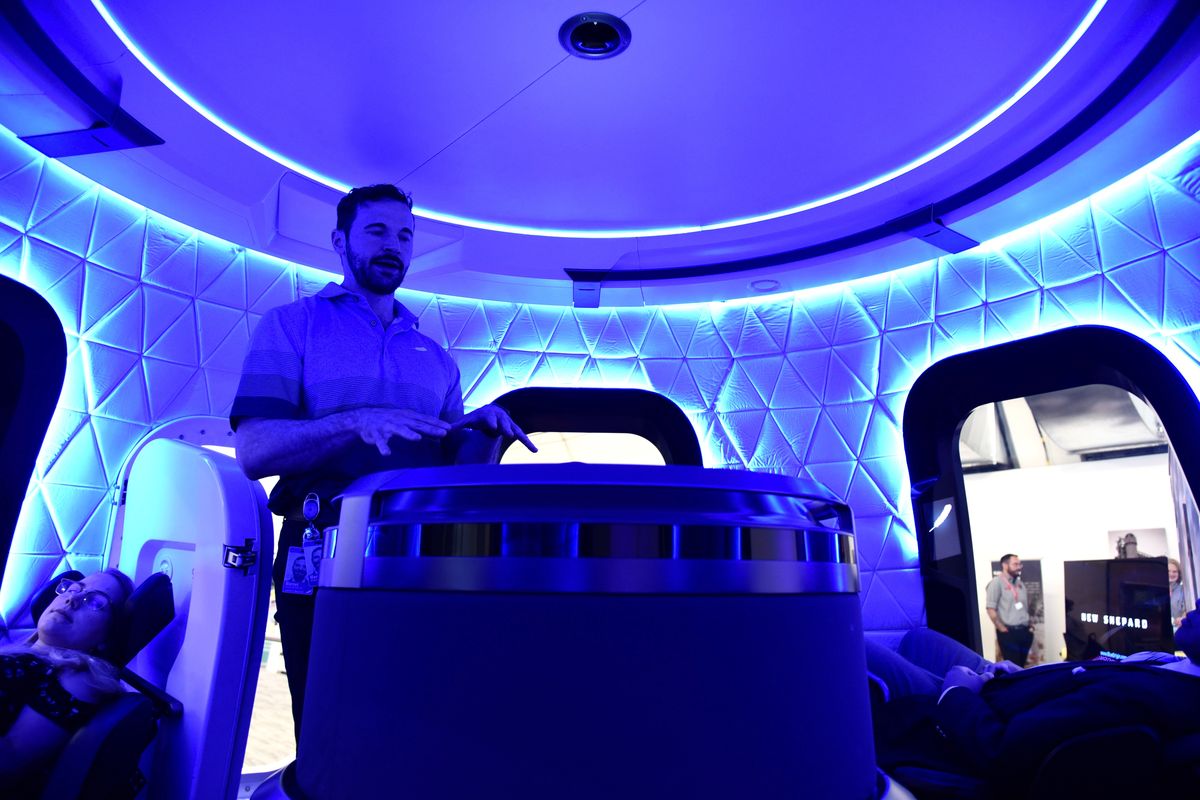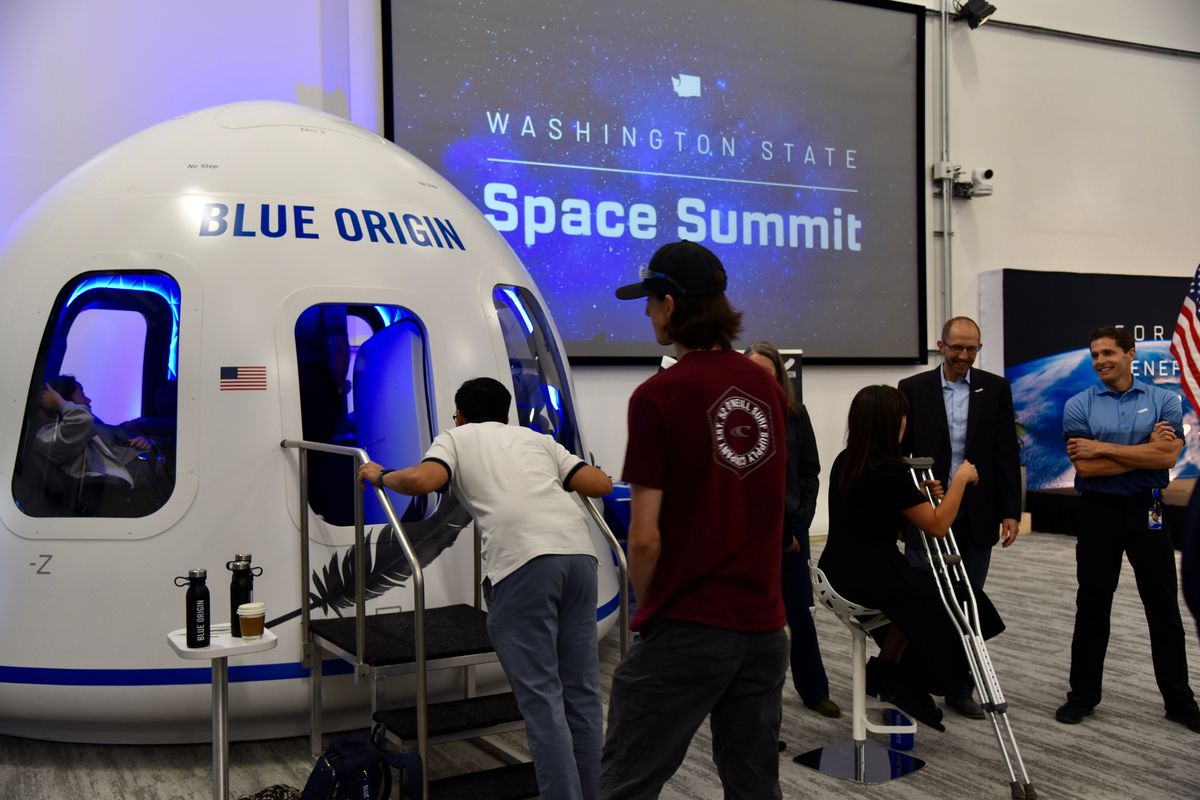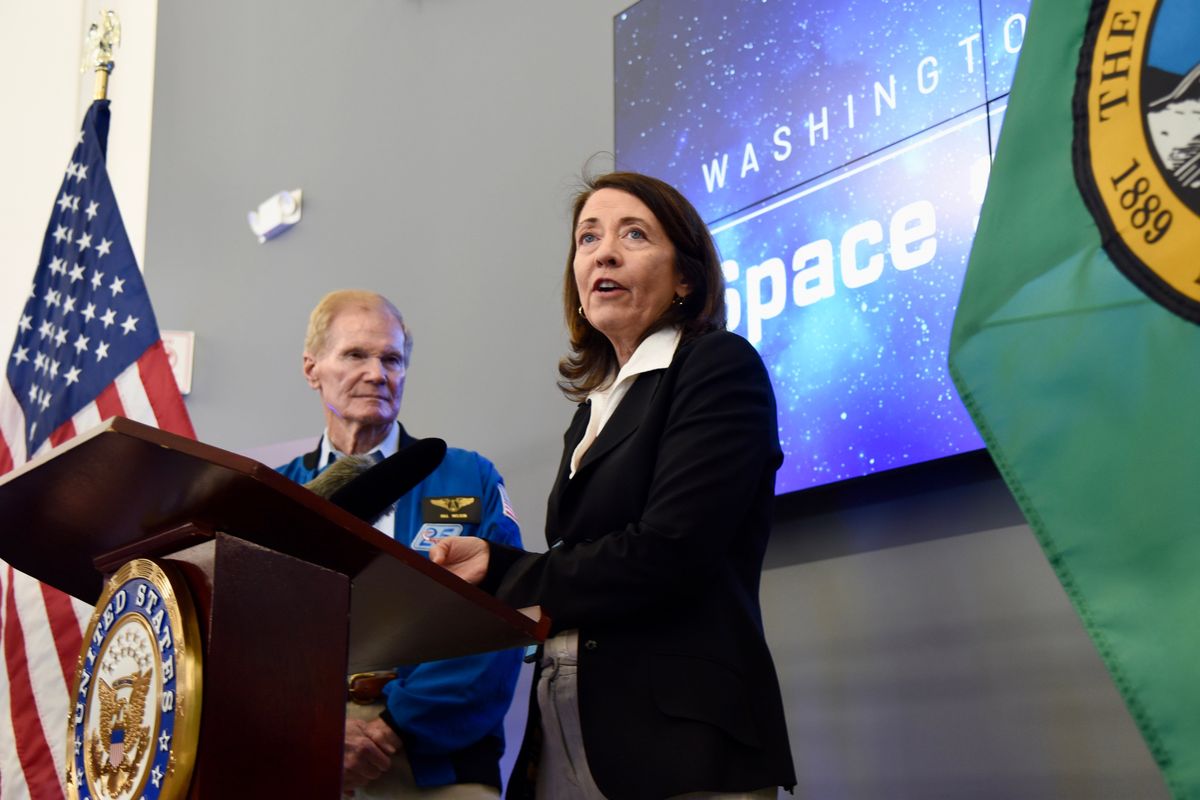NASA chief, industry officials say Washington is a leader in space
Sen. Maria Cantwell speaks with NASA Administrator Bill Nelson July 5 at the Washington State Space Summit in Kent, Washington. (Ellen Dennis/The Spokesman-Review)Buy a print of this photo
KENT – Washington state is helping propel the country to the moon and beyond.
Jeff Bezos’ Blue Origin – a Seattle-area company selling flights to space – hosted the Washington state Space Summit Wednesday at its headquarters in Kent, packing a large auditorium with people who share a common interest: extraterrestrial travel.
The event drew politicians, educators and representatives from nearly 20 regional space companies. NASA Administrator Bill Nelson and Sen. Maria Cantwell were among roughly a dozen panelists who spoke.
“We can see here today that many companies in the state of Washington are providing growth and opportunity for space jobs in providing a booming economy,” Cantwell said. “It has helped maintain America’s position in leadership of space exploration. … Our more than 100 space companies are innovating in satellite manufacturing, designs of rockets, solving everyday problems from the Moon to Mars.”
In 2022, the Puget Sound Regional Council released a report showing Washington’s space industry doubled in size over four years, generating $4.6 billion and more than 13,000 jobs. Cantwell called on Washington residents to support space research and exploration, noting there were 1,000 current openings for space jobs in the state.
“Some of those jobs average over $100,000 a year and don’t require a 4-year degree,” the senator said.
Nelson told the crowd that NASA is a “hot commodity” around the globe and affords the United States with soft power. In Washington alone, he said NASA contracts are responsible for creating more than 4,500 jobs.
“We’re going back to the moon after half a century,” Nelson said. “And we’re not going back just to go. We’re going in order to learn, to live, to work, to invent, to create – in order to go to Mars and beyond.”
Representatives from colleges and universities including Washington State University, Everett Community College, University of Washington and Northwest Indian College had tables at the “trade show” portion of the summit.
A rocket that went supersonic in 2014 sat on top of one table belonging to the award-winning Northwest Indian College Space Center. Representatives from the Lummi Nation college were invited to Wednesday’s summit. The college is currently working to add an accredited engineering curriculum to its course offerings.
“Something that’s really special about the Northwest Indian College Space Center is our teams just kept winning competitions,” spokesperson Natasha Brennan said. “So NASA approached us about putting together a pre-engineering program.”
Northwest Indian College is the only fully accredited tribal college in the Pacific Northwest, Brennan said, and students representing more than 100 tribes have attended the college. A class of about 150 students graduated this past academic year, Brennan said.
Trade show attendees had the option to sit back on reclined seats in a replica of Blue Origin’s New Shepard flight capsule. Blue Origin crew member Barret Schlegelmilch gave people a tour and rundown of the flight capsule. He said the company plans to launch another flight out of west Texas before the end of the year. The flight lasts 12 minutes.
Blue Origin does not list flight pricing on its booking page. The Observer reported people have reportedly paid up to $30 million for the suborbital trip 100 kilometers above the Earth.
“You get a few minutes to just enjoy the experience of being weightless in space,” Schlegelmilch said, “and most importantly, enjoy the view outside the window – of the Earth, the limit of the atmosphere and the blackness of space around.”


